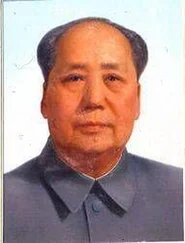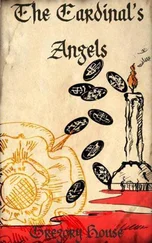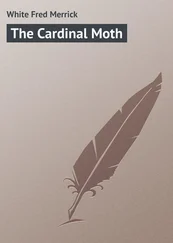ʹAh, what if I cannot prove it? Will you shoot me down on the spot? Messieurs are going to do a lot of explaining, Jussac will be beside himself with joy. My word of honour will have to suffice.ʹ
At the mention of their own lieutenant, the guardsmen hesitated. Cahusac obviously had a sharp answer on his tongue. That a word of honour alone would not suffice here might be connected with old resentment; the scar on his throat was a constant reminder of his first encounter with d'Artagnan. On the other hand; lieutenant de Jussac would indeed not be grateful for the riot, for an arrested officer or even a dead man on the steps. Captain Luchaire was too much of a politician, he left dirty matters to his substitute. While Tréville was happy to enter into any confrontation with Richelieu personally, Luchaire fulfilled his duties from his desk. The captain of the guards was a civil servant, an administrator. Jussac was thus given more responsibility and d'Artagnan rightly referenced him.
Cahusac finally decided with a nod to Sorel. ʹJoin him!ʹ
The younger one was saluting eagerly. He seemed to gladly take on the role of a nanny. D'Artagnan wondered for a brief moment whether he himself had shouted ʹYes!ʹ at the beginning of his career, so enthusiastically and impishly. Sorel was refreshingly innocent and the former musketeer looked at Cahusac with a raised eyebrow. ʹI know the way to His Eminence's study very well.ʹ
ʹThither? Good.ʹ Cahusac pointed behind him with an inviting gesture. D'Artagnan saved himself another sinister look and passed the veteran soldier. With two steps Sorel caught up with him and could not be shaken off or persuaded to turn back.
In the palace, another gallery soon followed the stairs. Richelieu had the former Hôtel d'Angennes magnificently furnished after the purchase. It had already been spacious before, now it could be called highly glamorous, even pompous. Every corner reflected the influence and power of the owner, from the porticoes to the famous gardens. The palace could have belonged to a king because of its sheer size and pomp.
ʹThis way.ʹ Sorel took the lead, and d'Artagnan had to admit reluctantly that the guardsman took a shorter route to their destination than the lieutenant would have chosen. On the way, they met some liveried servants, every now and then also a maid. Soon the whole household would know who was a guest today.
D'Artagnan, with a trained eye, noticed other guardsmen at their posts at seemingly important double doors or stairways, apart from the byways that Sorel and he followed. The sight stung him. An intact guard in the wrong uniform coat. What mockery and ridicule the musketeers would have uttered if the cardinal's guards had been disbanded! But Jussac must have inculcated in his men to keep a low profile and, for the good of the town, not to provoke a dispute about it. That too was aching.
At the gullwing door to the study of the prime minister, two other men stood guard. Sorel greeted his comrades and without further ado or discussion they were allowed to enter the anteroom. Cahusac had indeed made a wise decision not to let d'Artagnan go alone. Sorel was his pass.
D'Artagnan pulled himself together. He had to overcome his own resentment, put his pride aside and act wisely. Serenity instead of anger was required here. He took a few steps into the antechamber, Sorel on the other hand turned to leave, which earned him a surprised look from the lieutenant. The young guardsman seemed to suspect the unspoken question and answered it with a shrug. ʹCahusac waved you through on your word of honour. I have accompanied you, and that settles the matter.ʹ
D'Artagnan nodded slowly. Apparently, he still enjoyed a reputation among his enemies for keeping his word. They gave him far more credit than he was giving himself. He waited until Sorel had left, then he went on alone. Apart from a liveried servant, who watched over the arrangement of chairs and benches along the walls, no one else was present. Well, almost; the lieutenant was also patterned by Rochefort, who happened to be at the other end of the room at the door, which leads to the actual study.
D'Artagnan suppressed an impulse to defiantly cross his arms. He was decidedly too old for such gestures, even though Rochefort was too fond of paternal kindness and forbearance towards him. Instead, he marched over and greeted, ʹYou should have told your master's guards that I had been summoned.ʹ
ʹI would have. If I had actually expected you to show up.ʹ Rochefort made no secret of the fact that he had almost given up on the lieutenant after their conversation yesterday. All the more sarcastically, d'Artagnan remarked, ʹFor so many 'if' and 'would have' you wait for me with surprising patience.ʹ
ʹI prefer small chances, you know that. And I am apparently not waiting in vain, a good sign. How is your black eye?ʹ
ʹYou see signs where there are noneʹ, d'Artagnan announced brusquely, ignoring the question. ʹI may leave at any time.ʹ
ʹAt any time.ʹ Rochefort gave a silent order to the servant, who then left the anteroom. ʹBut only after this conversation.ʹ
He had hardly spoken when the door to the study was opened by another lackey. Obviously, d'Artagnan's arrival had already been announced and for a moment he was flattered that he seemed important enough not to be kept waiting. Of course he was wrong. Rochefort restrained him by the arm as he was already about to cross the threshold.
At this very moment an elderly Monsieur marched out of the study in an angry hurry. D'Artagnan estimated him to be just over fifty years old, his hard gaze from grey eyes and the upright posture referred to a confident character. The expensive clothes, his whole appearance suggested a nobleman of no small rank. A comte or even a duke? A steep pleat stood on his forehead, undoubtedly this man had fallen into conflict with the prime minister. One had to dare to do that with Richelieu!
D'Artagnan could not assign a name to the monsieur, neither from the face nor from the colours he wore. He could not be a frequent guest at royal court. Or his status meant there was no need for him to be permanently near the king and cardinal. There were two other men in his retinue, undoubtedly a personal guard in everyday clothes. An adjutant or secretary and some younger relative perhaps, well trained and loyal.
D'Artagnan immediately evaded respectfully as the monsieur walked past him. His companions followed him in a hurry because of the old man's determination. In passing, d'Artagnan was only honoured by a fleeting glance. Rochefort even received a disapproving frown. They seemed to know each other.
The stable master bowed his head respectfully and d'Artagnan did the same as if he had been ordered to do. Rochefort said half-loud, intended more to enlighten the friend than as an actual greeting, ʹMonseigneur de la Nièvre.ʹ He received no reply.
The name did not sound familiar and a few moments later the three visitors left the anteroom. Their footsteps faded behind the door and d'Artagnan considered this whole encounter unreal. When he looked up again, Rochefort was no longer beside him. Shortly afterwards, he understood the sudden haste with which the stable master had entered the study and where the lieutenant finally followed him into; Richelieu looked bad. The usually so unapproachable, powerful man stood bent over at his desk, as if the responsibility weighed too heavily on his shoulders after all these years of tireless duty. A fine film of sweat gleamed on his forehead. He looked pale, weakened. Now he coughed violently. Rochefort was beside him immediately and handed him a crystal glass of fresh water.
D'Artagnan remained standing undecidedly in some distance. While Rochefort looked after his master, d'Artagnan closed the door discreetly. Partly to make himself halfway useful in this quite unexpected situation, partly to be able to turn away with an excuse and not stare at the cardinal. He covered up his embarrassment by looking at the room. The furnishings were functional. Large windows let in the daylight. The heavy velvet curtains were probably only for decoration, similar to the valuable, heavy tapestry on the opposite. The lieutenant could not identify the motif on the goblin. Something historical or religious, probably, d'Artagnan had never dealt with such things. He was a man of arms and not of art. Therefore, the countless books and codices in the shelves did not only look sumptuous to him but also intimidating. Could a single man read so much in his life? Which of the books were even written by Richelieu himself?
Читать дальше












